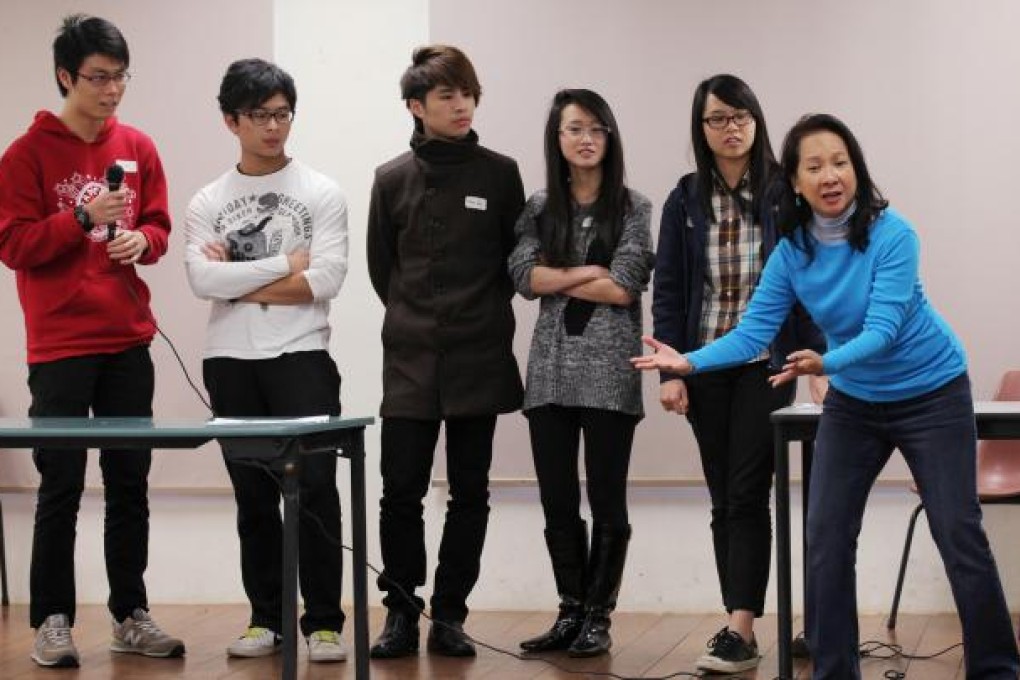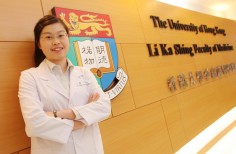A dose of humanities for medical students
How does exploring drama, art and literature help medical students become more caring doctors? Nora Tong finds out about a pioneering scheme

Since enrolling in the University of Hong Kong's (HKU) medical school five years ago, Lydia Kwong Lee-ting has studied diligently to acquire the knowledge and technical skills to become a good doctor.
But something was missing. All the tests, surgery and treatment just weren't enough to help patients. Kwong says she finally found the missing link when she began taking pilot modules in humanities, launched in 2009 by the medical faculty to help would-be doctors to nurture observation, empathy and self-reflection - interpersonal skills that are just as essential to patient care.

"We medical students are like these young people. We want to help our frail patients but are not able to," she says. "However, like those in the photo who want to establish a connection with the tree, I remind myself to make my patients feel they are loved."
Another module involved in-depth discussions with cancer patients. Kwong says these interviews were different from the usual ones in which she inquires about the medical condition of a patient and reaches a diagnosis.
A lot of times suffering doesn't end with a test or a drug. I will always bear this in mind, and I hope I will be a doctor with a caring heart
"We were encouraged to listen to the patients' stories and understand their concerns and fears, such as why they wouldn't want to undergo a certain kind of treatment," she says. "There is often a reason behind what some doctors may see as stubbornness; a family member or a friend might have suffered from serious side effects from the same treatment. Taking part in this course made me realise that a doctor should take into account the emotional needs of a patient in deciding the type of treatment, and that a lot of times suffering doesn't end with a test or a drug. I will always bear this in mind, and I hope I will be a doctor with a caring heart."